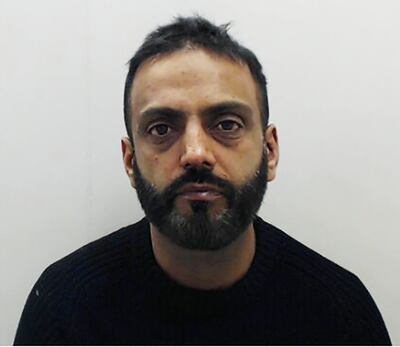The UK government has been accused of "complacency over fraud" concerning a loan scheme used to help businesses survive the coronavirus pandemic.
An investigation revealed that British border officials confiscated suitcases full of taxpayers' cash as people attempted to smuggle loan money out of the country.
Some were allegedly stopped at airports “carrying large amounts of money suspected to be from coronavirus bounce-back loans”, a Home Office source told The Times newspaper.
The money was confiscated by the Border Force under the Proceeds of Crime Act and legal enquiries are under way.
The Times said that the support money was used to fund gambling sprees, home improvements, cars and watches. One analyst described the fraud as the "tip of the iceberg".
Several people have been disqualified from serving as company directors after they misused the scheme, which was intended to prop up flagging businesses with lending of up to £50,000 ($68,107).
About £47 billion ($60bn) was paid out in loans to 1.5 million businesses in the bounce-back loan scheme, which was introduced on May 4, 2020 during the height of the pandemic.
The money came from banks but, if companies were unable to pay it back, the government promised it would fully reimburse the lenders.
The government's National Audit Office estimates suggest that £17bn worth of loans will not be paid back. An additional £4.9bn is estimated to have been lost to fraud.
The head of a group of British MPs charged with overseeing transparency in spending accused the government of using the speed of its response to the pandemic to excuse a disregard for how much it will cost the taxpayer.
Labour's Meg Hillier said she and her fellow MPs on the Public Accounts Committee were “unpleasantly surprised” to learn the government had learnt little from the 2008 banking crisis".
The committee, chaired by Ms Hillier, said the Department for Business Energy & Industrial Strategy (Beis) was “complacent” in preventing fraud in the bounce-back loan scheme.
“With weary inevitability we see a government department using the speed and scale of its response to the pandemic as an excuse for complacent disregard for the cost to the taxpayer,” she said.
“More than two years on, Beis has no long-term plans to chase overdue debt and is not focused on lower-level fraudsters who may well just walk away with billions of taxpayers’ money."
This year it was reported that a drug dealer and car thief with at least 48 convictions was granted a £50,000 loan under the programme.

Judge Anthony Cross demanded answers as to how Asif Hussain, 44, was given money for a bogus company fewer than seven days after applying to the government’s bounce-back loan scheme.
Hussain was the ringleader of a group that had stolen at least 95 high-value vehicles – including Range Rovers, Mercedes Benzes and Porsches – and exported them to the Middle East.
“That a criminal such as you could obtain such a huge sum is staggering,” the judge said, as he jailed Hussain for car theft and fraud.
“I do not accept for one moment that you intended to repay the BBL [bounce-back loan] nor could you. That money is long gone.
“The public are entitled to an explanation as to how these loans were obtained. That explanation must be made public.”


